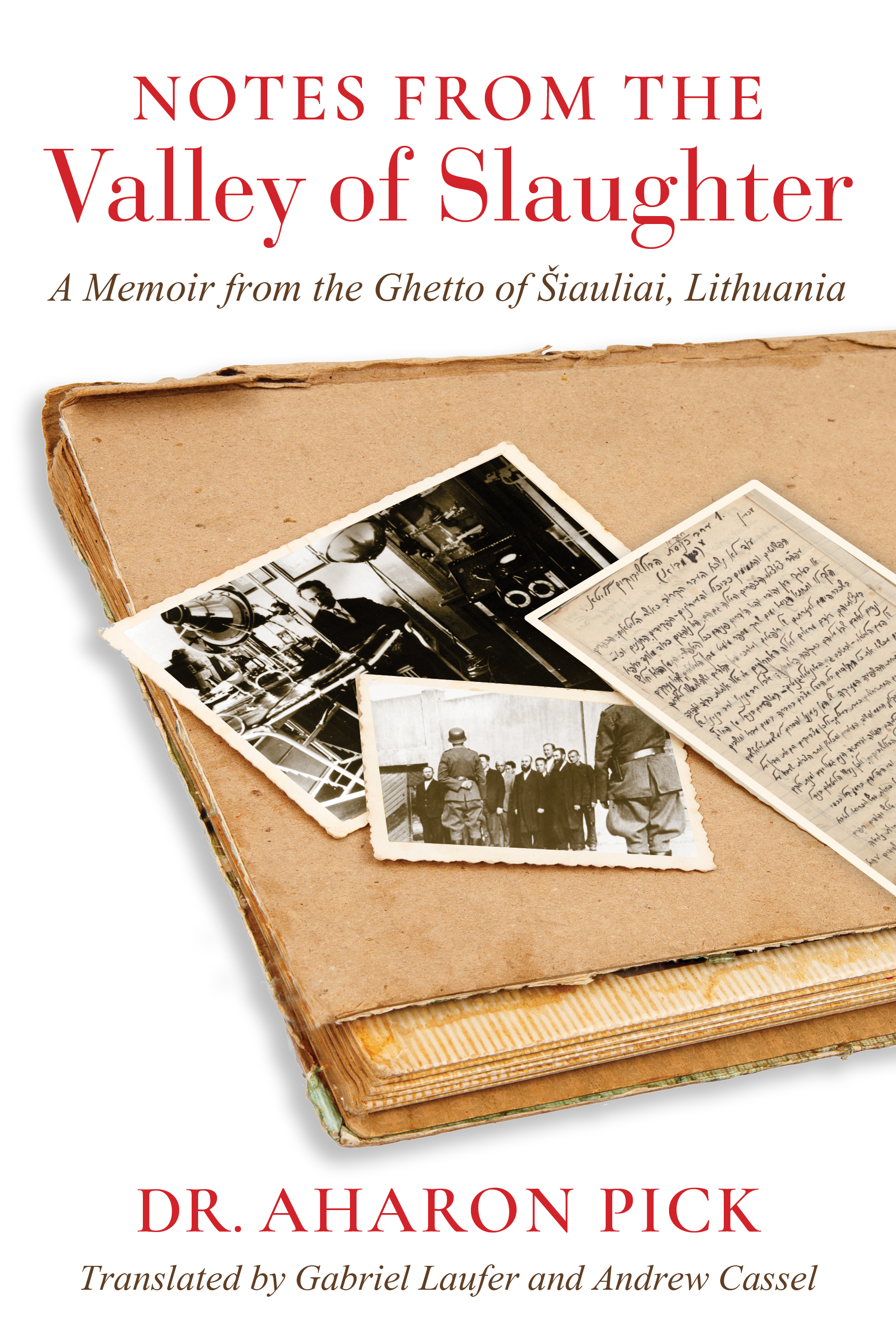Event
Notes from the Valley of Slaughter: An eyewitness journal and diary of the Holocaust in the ghetto of Šiauliai, Lithuania, by Dr. Aharon Pick (1872–1944)
A book celebration: Andrew Cassel in conversation with Beth S. Wenger
The Jewish Studies Program Kutchin Seminar Series and the College of Liberal and Professional Studies at the University of Pennsylvania are proud to invite you to an extraordinary book celebration.
Author and translator Andrew Cassel has brought readers a truly unique Holocaust memoir, produced as part of his Master of Liberal Arts degree at Penn.
Notes from the Valley of Slaughter is one of only a handful of diaries to survive the annihilation of Lithuanian Jewry. An eyewitness journal and diary of the Holocaust, it was written in the ghetto of Šiauliai, Lithuania, by Dr. Aharon Pick (1872–1944), a physician, scholar, and community leader, Pick was a keen observer of the hardships of ghetto life, and his journal represents a detailed account of the tragic events he witnessed as well as a sensitive, almost poetic personal testament. Pick was among a handful of Šiauliai Jewish physicians spared execution and allowed to work for the occupiers. Although Pick succumbed to illness in spring 1944, shortly before the ghetto was liquidated, his son Tedik buried the manuscript before fleeing the ghetto, retrieved it after liberation, and carried it with him to Israel. The journal was unknown outside his family and immediate circle until the late 1990s, when a transcription in Hebrew was published. Pick’s manuscript was subsequently acquired by the U.S. Holocaust Memorial Museum in Washington, D.C. Translated for the first time into English and extensively annotated, it conveys Pick's voice to a wider international audience for the first time.
This event will be in-person with a virtual option. Register for online.

A native of New York City, raised in Long Island and Connecticut, Andrew Cassel graduated from Dartmouth College and spent 35 years writing and editing for US newspapers, covering business, politics, and culture. In the 1990s and 2000s he wrote a column interpreting economic news for the Philadelphia Inquirer, and edited the work of economists at Moodys Analytics. In retirement he earned a Master of Liberal Arts degree at the University of Pennsylvania, also studying Yiddish in the US and Europe. He has translated a range of historical and biographical essays while curating a website devoted to Jewish history in Lithuania and elsewhere.
Beth S. Wenger is Moritz and Josephine Berg Professor of History at the University of Pennsylvania where she serves as Associate Dean for Graduate Studies. She was Andrew's MLA capstone advisor and proud supporter of the book’s publication.

